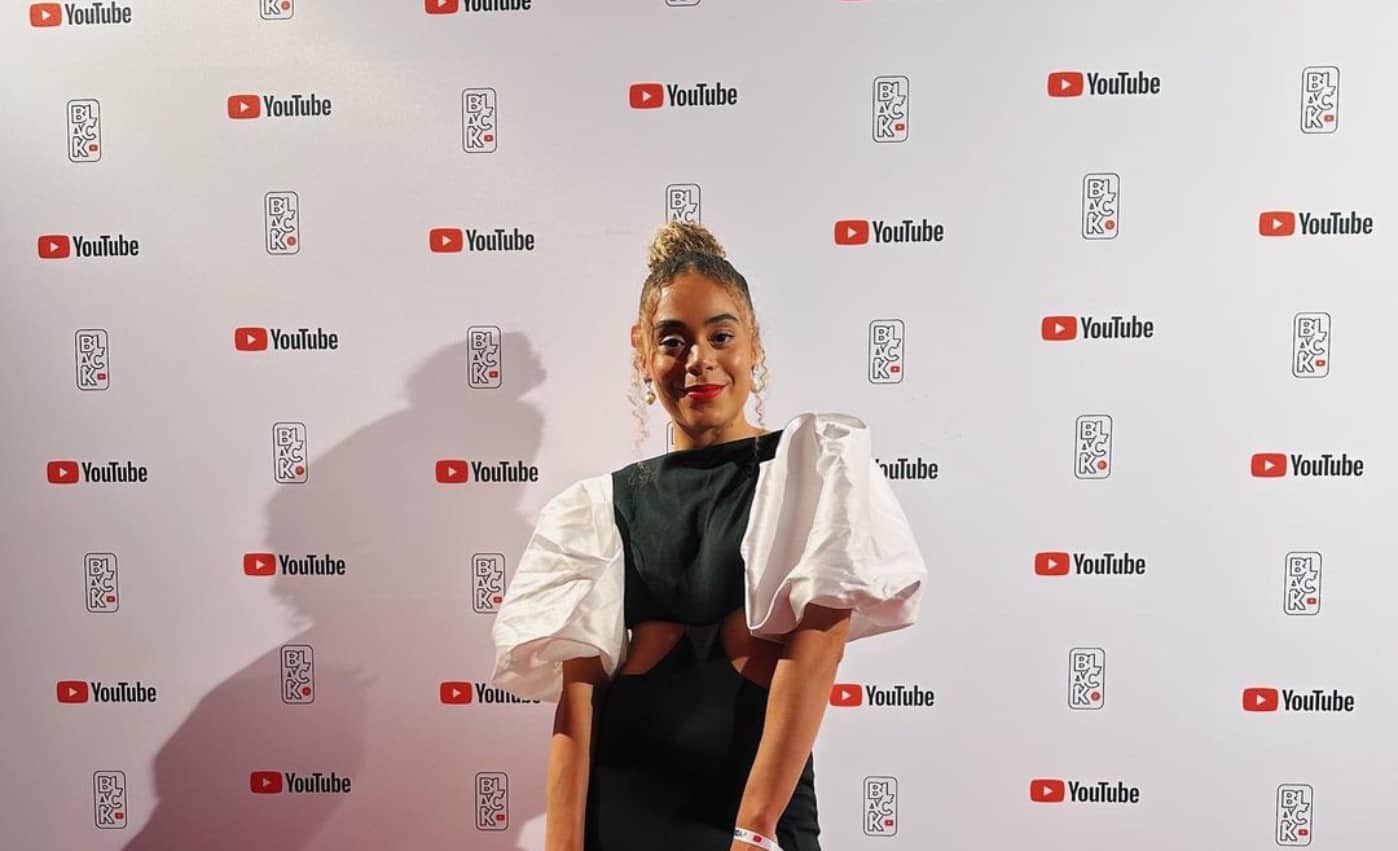Even over Zoom, on a gloomy Wednesday morning, Jay Richards positively fizzes with enthusiasm, with enterprise. This lightning quality suits Richards’ business down to the ground; he is the co-founder of Imagen Insights, a Gen Z research agency in London that seeks to electrify brands with the energy of this young demographic. Harnessing the power of this most volatile of generations requires a particular kind of conductor, and right now, Richards is it.
In his previous professional life, Richards was a consultant for an insurance company, and as a side hustle he decided to put his own cash into a start-up incubator called DivInc, to invest in: “Black kids that grew up in East London, where I’m from.” Through DivInc, Richards connected with a network of “very intelligent young people who were doing amazing things” and attracted the attention of the wider business community. Invited by Facebook to speak at a conference about the importance of young entrepreneurship, he decided to bring 20 of these kids “and they were like locusts eating all the food and hanging out, which I absolutely loved”. When he got off the stage, the head of retail for the National Football League (NFL), who had been in the audience, asked him: “I see you’ve got this network of young people. Could they help us to create a marketing campaign?” Richards replied: “‘Okay, let me take you to dinner’. I took her out and the crux of her problem was she couldn’t get qualitative content at scale. So I started the business.”
Key takeaways
- Gen Z want experiences and travel, particularly post-pandemic
- Brands should converse with, not broadcast to, this demographic
- Gen Z build brand affinity later than the previous generations
- Good brands should always engage with bad feedback
Four years later, Richards and his co-founder Cat Agostinho have built a platform that enables brands such as Amazon, Apple and Nike to gain qualitative insight from Gen Z within a matter of minutes. It has 35,000 Gen Z voices in 111 countries, and a Generation Alpha proposition is in the pipeline.
If a brand wants to be curious from a quantitive perspective, it’s easy: Platforms such as You Gov mean you can log in, type in a word or phrase such as “water bottle”, to use Richards’ example, and “it will pull up all of the percentages and all the charts you will ever need”. But, says Richards: “If you want to be equally curious from a qualitative perspective, it’s very hard. Your two options are either organising a focus group, which is time-consuming and expensive, or social listening. Social listening is a great tool, but the challenge is ‘when is anybody being honest in social media?’ I said to myself, ‘why not take the best of ‘quant’, which is scale, and the best of ‘qual’, which is those 200-word responses and bring those worlds together.”
With Imagen Insights, clients – such as Samsung and Condé Nast – have a self-service dashboard where they can ask what they want, to the market they want, with the number of responses they want. The questions immediately go out “to our community, who get them on their mobile phone. The entire process is designed so the clients can ask what they want, and the community can get paid to answer interesting questions.”
The community (members of which have to be above 16 to receive payment for their opinions) is built through word of mouth, with each member on average recruiting two to five more. People are paid for their ideas, and being part of the Imagen Insights platform also informs its users about everything from the product development process to marketing messaging. What really energises Richards is helping young people understand that their opinions and thoughts have value: “Everybody has worth.”
Being at the frontline of Gen Z thoughts means Richards has valuable insight of his own into this complicated generation’s wants and needs. We talk about common misconceptions. The first is that this is a generation that doesn’t spend. Richards points out that the oldest of this cohort are now 27- years-old: “They are already spending, they are already in the workplace.” But as far as the spending is concerned, Gen Z have a problem, unlike Millennials and Generation X who have built brand affinity much earlier. He says: “Our brand affinity and brand love were largely dictated by the people in our circle. The difference with Gen Z is that, while it’s still dictated by the people in their circle, because of social media, they have access to much more data. The brands that they fall in love with, they end up falling in love with later, because they’ve got so much choice. Gen Z suffer from choice paralysis.”
The second misconception is that activism influences all of their decisions, that all Gen Z care about are social issues and the environment. Instead, Richards says, the climate factor creates tension for Gen Z because, ultimately, they want experiences too, and this is in part due to post-pandemic pressures. He says: “Looking at our data, a lot of them just want to have experiences. They care about the environment, but they also want to travel to the other side of the world. There is this tension between ‘I care about the environment. I know it’s burning, but at the same time, I want these experiences because they were dampened by the pandemic’.”
The third insight we discuss is that this is a generation who very much want to be in a conversation with brands. Richards says that in the past, brands would, metaphorically speaking, use social media as a private party that they would invite all their guests to, then lock the door, grab a microphone and “scream ‘This is what we’re doing today. Look how important we are, look at how we’re saving the world’.” Richards sees a notable change in the fact that brands which are successfully engaging Gen Z are the ones in conversation with them. Says Richards: “Instead of brand down, they are bringing the brand to a more parallel level by having a conversation. Whether that’s doing research with you, whether it’s conversing with you via social, in the comments, it’s an authentic, natural experience.”
Brands thriving in this way include FootAsylum, says Richards, for investing big in a long-term strategy and working with creators such as Chunkz and Yung Filly. He cites Gymshark and Ryanair as well, which have a strong social media game “and Gen Z love, love that”. Also, he says, brands such as Ryanair are unafraid of feedback.
Jay Richards: “Good clients hear the feedback and make the change”
So how do Richards’ clients feel about the “brutally honest” feedback from the mobile phones of anonymous Gen Zers? He tells me it can go either way: Imagen Insights had a big entertainment client that was certainly not expecting the avalanche of criticism towards its new product when it was sent for survey. Says Richards: “The feedback was in a certain manner, and at first they were shocked, and then they loved it.” The client responded that, although it wasn’t what they had expected to hear, “the videos and the content they were getting from the community, they were sharing with the entire company”. Richards reflects: “I think good clients such as Nike, Amazon and Google, they hear feedback, and they make the change.” Indeed, Amazon went as far as changing its Instagram grid colours after conversations with the Imagen Insights community. However, for every client who is open, there are those that say “Nope, we don’t want to hear this, and we’re going to keep doing what we were going to do”. He adds: “I am not going to mention those brands because I want to still have a business model.”
Richards is unswerving in his enthusiasm for the diverse, engaged community he represents. The platform is designed for brands to maintain contact with the community, to continually check their temperature; it’s not “designed to be ‘oh, let’s just jump in once’ and then never speak to them again”. Instead, says Richards: “You can keep asking questions, and keep that finger on the pulse.” Questions that keep the community engaged include: “Who’s your favourite YouTuber right now? What products did you buy last week that you love? Why do you love them? What streaming platform are you currently using every single day? What shows are you watching?”
And the beauty of the process, he says, is by asking young people in major cities, because that’s where you set the trends that have the ripple effect across the country. Something such as “Who is your favourite YouTuber?” can be utilised through the process to distil who to work with for maximum engagement. And not only that but the community will tell, let’s say Nike, “exactly what they would expect it to do with that YouTuber in October for Black History Month”.
There are plans to bring on more Generation Alpha users, but GDPR legislation means they cannot be paid or have their data shared until they are 16. But there are plenty of Imagen Insights siblings waiting in the wings – Richards estimates they have more than 1,000 so far in their database – gearing up for their feedback moment. And to be clear, Richards is not afraid of feedback himself, rather he encourages it. “One of the consequences of being close to your community is being close to your community,” he says, adding, “They’ll be like, ‘this sucks; that doesn’t make sense; I can’t do this on the app; why is this not working’?”. He shrugs happily, “and that’s the beautiful thing.”
By Emilie McMeekan, CORQ features director. Picture credit: Jay Richards









